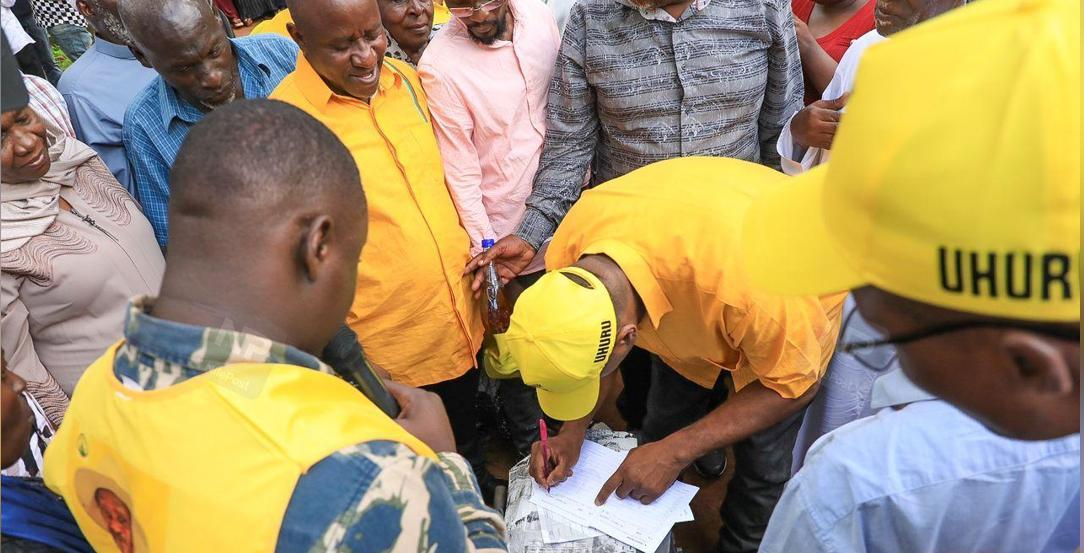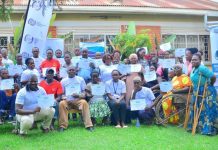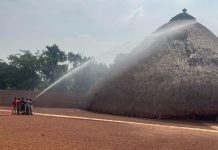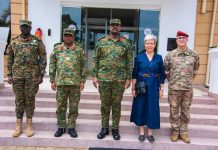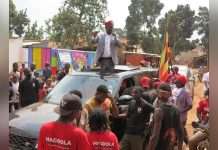Africa-Press – Uganda. The ruling National Resistance Movement (NRM) has come under increasing scrutiny following reports that Resident District Commissioners (RDCs), security personnel, and other civil servants have actively participated in its ongoing internal elections without first resigning their government positions, as required by law.
While the party pushes to revitalise its grassroots structures ahead of the 2026 general elections, critics argue that the process is undermining constitutional norms and civil service neutrality.
Several political commentators and legal experts have warned that this growing overlap between public office and partisan activity risks breaching both ethical standards and the law.
One of the most prominent cases concerns Taban Amin, Deputy Director for Special Operations at the Internal Security Organisation (ISO), who reportedly took part in the NRM elections in Bweyale Town Council, Kiryandongo District.
Taban is also said to have declared his interest in becoming the party’s district chairperson, but there has been no confirmation that he has resigned from his high-level security role.
“This is not just a technicality,” said city lawyer Christopher Kajwala in an interview.
“NRM party elections are intended to identify leaders who will eventually contest in the general elections. If RDCs and other public servants are participating in elective politics under the NRM without resigning, that is illegal and should not be allowed.”
The controversy touches a longstanding concern in Uganda’s governance—where public service roles are often seen as extensions of political loyalty. G
erald Werikhe, a Kampala-based political analyst, noted that such practices diminish public trust and set dangerous precedents for the impartiality of state institutions.
“In Uganda, we need to change our mindset and begin to respect the office more than the individual,” Werikhe said.
“People need to appreciate why they are appointed to serve in those positions. If one wants to join elective politics, they should leave public office honourably.”
Reports indicate that while some RDCs, such as Hudu Hussein, Aminah Lukanga, Yasin Ndide, Deborah Wesigwa, and Abdul George Omongi, are said to have resigned before participating in the party elections, others appear to be actively involved without having followed due process.
The ambiguity surrounding their employment status has fuelled further calls for accountability and transparency.
“The RDC Secretariat must rein in its people,” Werikhe added. “What is taking place right now is illegal, and if this continues unchecked, it will dent the image of the NRM as a party that respects the rule of law.”
Observers point to the Public Service Standing Orders, which explicitly prohibit civil servants from engaging in partisan politics unless they have officially resigned.
These provisions are meant to preserve the neutrality of the public service and ensure that state resources and roles are not co-opted for political advantage.
Beyond legality, concerns are also being raised about service delivery. Critics argue that public officers who divide their time between political campaigns and state responsibilities are unlikely to perform either effectively, raising fears of compromised governance.
Amidst the growing criticism, the NRM leadership has indicated it is taking the matter seriously.
“We are taking note of these developments and looking into the reports that some public officers may have participated in our internal elections without following due process,” a senior NRM official who declined to be named told.
Whether the party will take disciplinary action or establish formal guidelines to prevent further encroachment of partisan politics into public office remains unclear.
However, the episode has once again stirred debate about the urgent need to strengthen institutional boundaries in Uganda’s political landscape, especially as the country gears up for a high-stakes electoral season.
For More News And Analysis About Uganda Follow Africa-Press

